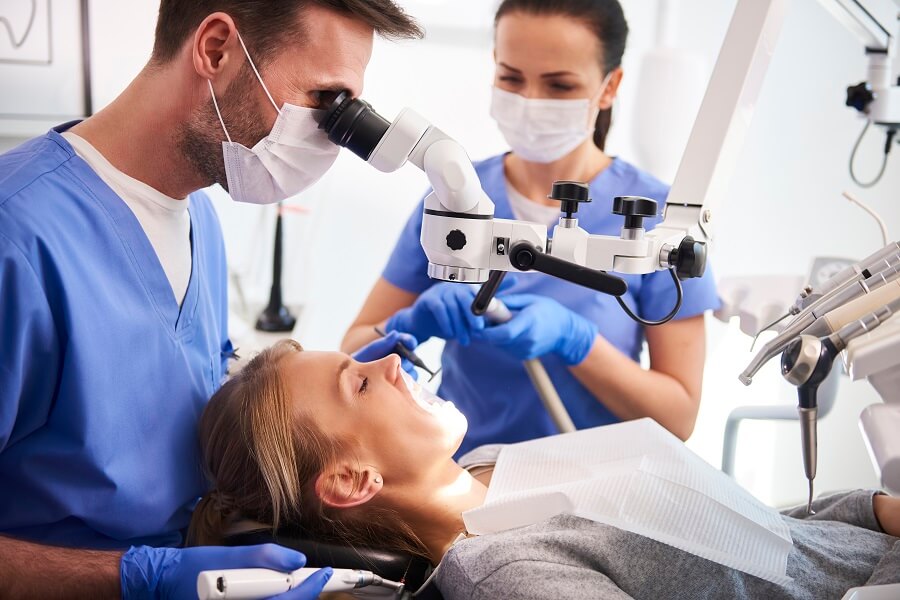Do You Know How to Handle Dental Emergencies?
Dental emergencies can strike unexpectedly, causing pain, discomfort, and anxiety. Whether it’s a sudden toothache, a broken tooth, or an injury to the mouth, knowing how to handle these situations promptly and effectively can make a significant difference in preserving oral health and minimizing potential complications. In this article, we will provide you with essential guidelines to navigate dental emergencies with confidence, allowing you to take the right steps until you can seek professional dental care.
Stay Calm and Assess the Situation
During a dental emergency, it’s crucial to remain as calm as possible. Panicking can make the situation feel more overwhelming and hinder your ability to take appropriate action. Take a moment to assess the problem and identify the source of pain or injury. Understanding the nature of the emergency will help you communicate the issue clearly to the dental professional when seeking help.
Toothache Troubles
A toothache can be a sign of various underlying issues, such as dental decay, a cracked tooth, or an abscess. Start by rinsing your mouth with warm water to remove any debris or food particles that might be causing irritation. Use dental floss gently to ensure there is no food trapped between the teeth. Avoid placing aspirin or any other pain-relieving medications directly on the gums, as it can lead to tissue damage. Instead, you can take an over-the-counter pain reliever according to the recommended dosage.
Dealing with a Broken Tooth
If you’ve fractured or chipped a tooth, gather any broken pieces if possible. Rinse your mouth with warm water and, if there’s bleeding, apply gentle pressure using a clean piece of gauze or a moist tea bag for about 10 minutes until it subsides. A cold compress can help reduce swelling and provide relief. It’s crucial to visit a dentist immediately, as a broken tooth can expose the sensitive inner layers to bacteria, potentially leading to infection.
Knocked-Out Tooth: Act Fast!
A knocked-out tooth is a dental emergency that requires immediate attention. If your tooth has been completely dislodged, hold it by the crown (the top part) and rinse it gently under running water to remove any dirt or debris. Do not scrub the tooth or remove any attached tissue fragments. If possible, try to reinsert the tooth into its socket, making sure it faces the right way. If reinsertion is not possible, place the tooth in a container of milk, saline solution, or saliva, and head to a dentist or emergency room immediately. The sooner you seek professional care, the higher the chances of saving the tooth.
Dislocated or Fractured Jaw
If you suspect a dislocated or fractured jaw due to an injury, it’s vital to stabilize the area and seek immediate medical attention. You can use a towel or a necktie to create a makeshift sling to support the jaw and prevent any movement until you reach a hospital or emergency dental clinic.
Handling Soft Tissue Injuries
Injuries to the soft tissues of the mouth, such as the tongue, lips, or cheeks, can result from accidents or unintended bites. Clean the affected area gently with warm water and apply a cold compress to reduce swelling. If the bleeding persists or the injury is severe, seek medical attention promptly.
Lost Dental Filling or Crown
If a dental filling or crown becomes dislodged, it’s essential to protect the exposed tooth until you can visit your dentist in The Colony. You can apply a small amount of dental cement, which is available at most pharmacies, to cover the affected area temporarily. Avoid using regular household glue, as it can be harmful if ingested.
Prevention is Key
While dental emergencies can happen unexpectedly, taking preventive measures can reduce the risk of certain incidents. Regular dental check-ups and cleanings can help identify and address potential issues before they escalate. Wearing a mouthguard during sports activities can protect your teeth from injuries, especially for those who participate in contact sports.
Being prepared to handle dental emergencies with confidence can be crucial in preserving oral health and reducing the risk of complications. Staying calm, assessing the situation, and taking immediate action when necessary are essential steps in managing dental emergencies effectively. Remember that seeking professional dental care as soon as possible is vital, as dentists are equipped with the expertise and tools to address emergencies and provide appropriate treatment. Prioritize your oral health, and take preventive measures to minimize the chances of dental emergencies in the first place.





 |
|